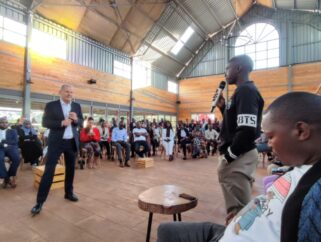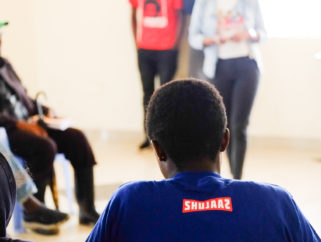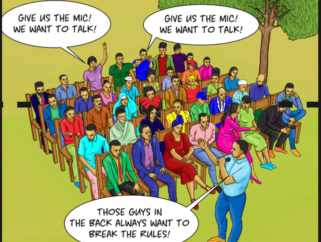WHEN YOUNG PEOPLE AGREE WITH ADULTS, SOMETHING STRANGE IS HAPPENING… unexpected findings from our radicalisation GroundTruth [ARCHIVE]
- Governance
- 31 Jan 2016
Well Told Story’s (Shujaaz Inc’s) GroundTruth process involves meeting young people in their own environments, really listening to them and then triangulating what we hear with the views of those adults around them – parents, teachers, pastors, community leaders. One of the key things we usually find is that there are normally two points of difference between young people and the adults in their environment.
First, they disagree on the nature of what (if any) problems there are on any given social issue. For example adults worry that young people’s sexual behaviour needs controlling and that young people don’t know enough about contraception. Young people on the whole do not think that their behaviour needs managing by others and the levels of contraceptive knowledge are surprisingly high. So this leads to the second point of disagreement. Young people don’t agree with adults on what needs to be done to improve their lives when it comes to reproductive health. Well Told Story spends a lot of time negotiating this difference with our clients and partners, helping them to see that the best way to engage young people is on their own terms.
However we were surprised in our recent GroundTruth study on radicalisation and violent extremism in Nairobi and Mombasa to find that in this area there is no disagreement. Young people and those around them share very similar views as to the nature of the problem. They all see terrorists hiding behind Islam, a group of youth targeted at key vulnerable moments, a society that has been so shocked and bullied they passively accept a binary framing of the issue and, as a result, are too scared to make any interventions, and a terrorist group that is a master at social media continuing to set the terms of the debate as one of victimisation and exclusion. They also share a common view as what needs to be done – a wide range of social, economic and political actions.
We think that this is remarkable – and something that should not go unnoticed. We have here a problem that everyone shares views on and a problem where everyone is looking for commitment and courage from their local and national leaders.
However everyone is also aware that many of the actions taken by authorities in ‘combating’ terrorism are in fact crudely and unjustly and indiscriminately targeting young people in their daily lives. The authorities – frustrated by the ‘invisible enemy’ – are making all young people’s lives difficult and in so doing are validating the terrorists’ narrative of victimisation and exclusion. This is wearing away at the unity we found within communities.




![#Shujaaz360 KENYA 2017 State of the Youth Report: Part 2 ‘Hungry, Angry, Lonely, Tired’ [ARCHIVE]](https://www.shujaazinc.com/wp-content/uploads/2020/01/360-gov-final-info-321x242.jpg)
![Digital Traces: youth’s online engagement with politics in Kenya [ARCHIVE]](https://www.shujaazinc.com/wp-content/uploads/2019/12/BKM_0626-copy-321x242.jpg)